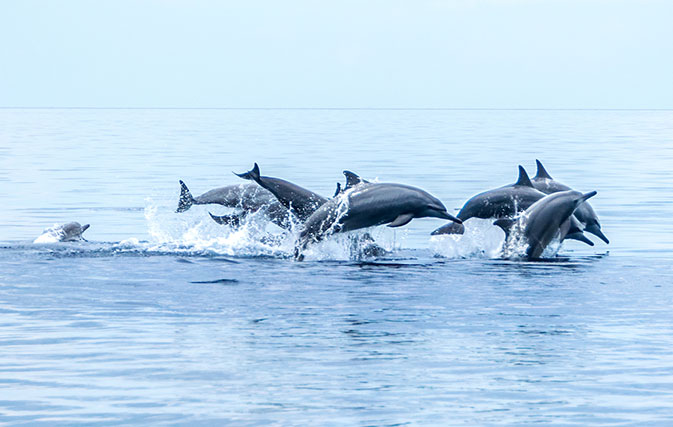TORONTO — Some 64% of Canadians polled say they have gone on holiday to a destination where dolphin tourism was offered. Toronto-based organization World Animal Protection, backed by its new report, Behind the Smile, is looking to put an end to dolphin tourism.
The report shows the massive scale and profitability of the multibillion-dollar, dolphin entertainment industry which causes immense animal suffering, says World Animal Protection. Around the world there are some 336 dolphin entertainment venues in 54 countries, including the U.S., Mexico, China as well as many islands in the Caribbean.
“For wide-ranging, social and intelligent animals like dolphins, a life spent in a concrete tank entertaining tourists is no life at all. Every ticket sold is an incentive for this industry to continue breeding and capturing dolphins for a lifetime of suffering,” says Melissa Matlow, Campaign Director for World Animal Protection.
Last June, Canada passed legislation banning the breeding, display and trade of cetaceans (whales, dolphins and porpoises), making it illegal to possess cetaceans for purposes other than research or rehabilitation.
Transat and Air Canada have also shown leadership on this issue, says the organization.
Transat has ceased commercializing all shows featuring captive marine mammals, including swimming with dolphins, with its holiday packages and flights-only sales. “Transat supports the actions of World Animal Protection and is committed to helping its local incoming tourism partners, including its own Trafic Tours business unit, to cease commercializing such activities by finding economically viable and socially acceptable ways to replace them within two years,” says Odette Trottier, Director, Communications and Corporate Affairs for Transat.
Peter Fitzpatrick, Director of Corporate Communications for Air Canada, Central Canada says that by the end of August 2020, Air Canada and its subsidiaries (including ACV) will no longer directly sell or promote packages to, or generate revenue from, attractions that involve the captivity of current or future generations of dolphins.
Meanwhile 50% of Canadian tourists still consider keeping dolphins in enclosures acceptable and one-third of Canadian travellers have participated in at least one dolphin-related activity in the past three years, according to the report.
“Canadian attitudes and behaviours are changing,” says Matlow. “When people learn the truth about how dolphins suffer, they don’t want to participate. That’s why we are calling on travel companies like Expedia Group and others that are lagging behind to stop supporting activities that cause harm to animals.”
She says World Animal Protection’s goal “is to make this the last generation of dolphins to suffer for our entertainment.”
More information is at worldanimalprotection.ca


